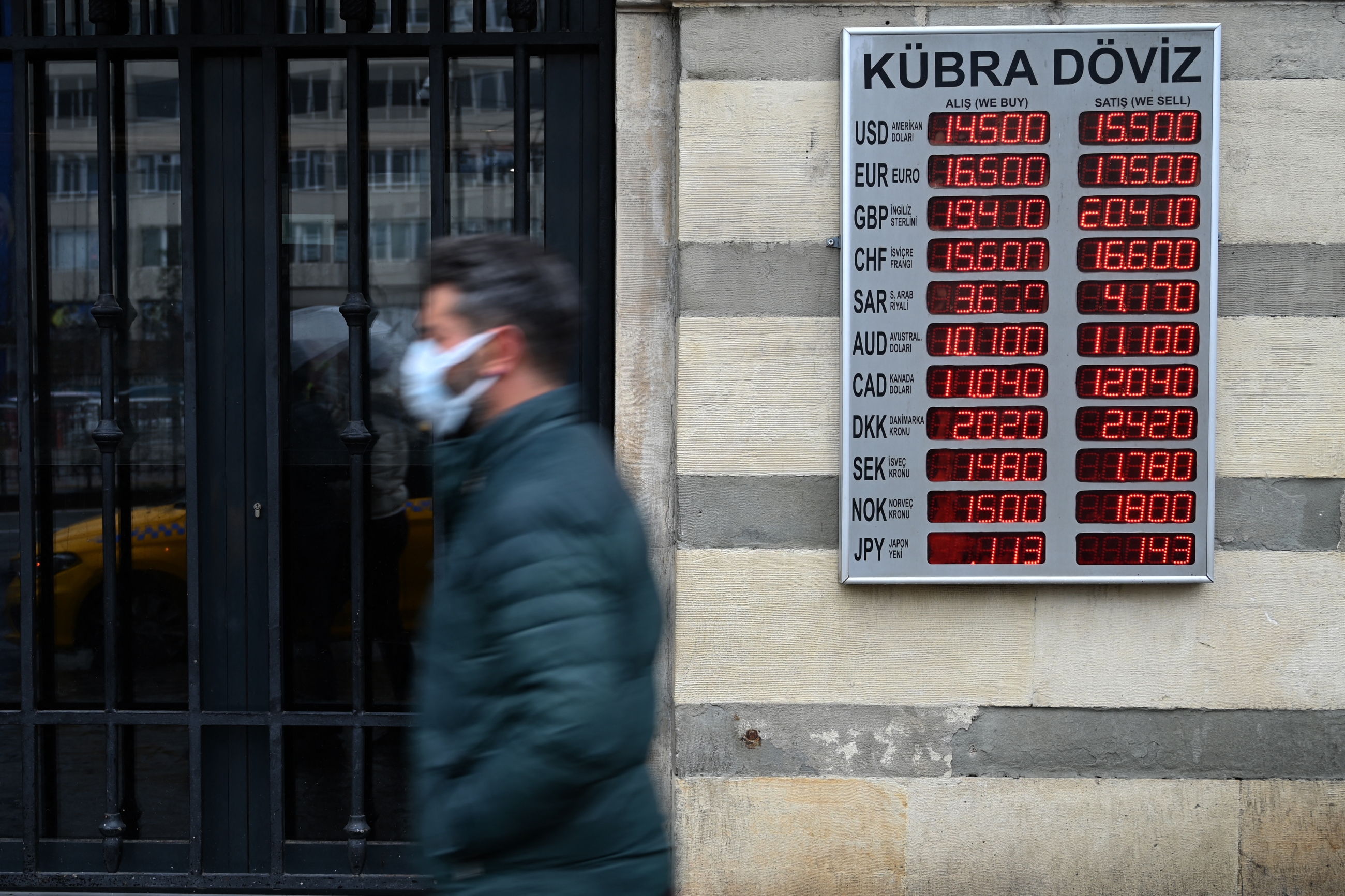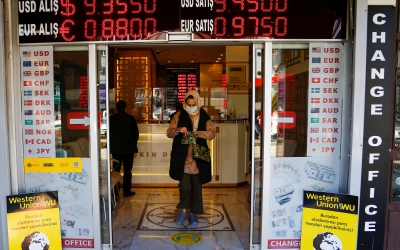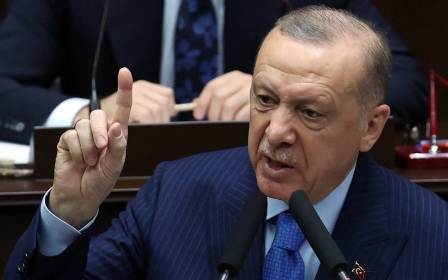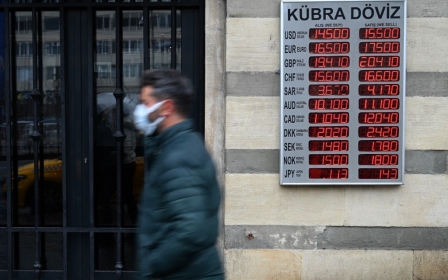Inflation in Turkey soars to two-decade high of nearly 70 percent

Turkey’s annual inflation rate soared to nearly 70 per cent in April, a two-decade high, new data showed on Thursday.
Turkey's consumer price index rose by 69.97 percent year-on-year in April compared with 61.14 percent in March, the national statistics agency said in a statement.
New MEE newsletter: Jerusalem Dispatch
Sign up to get the latest insights and analysis on Israel-Palestine, alongside Turkey Unpacked and other MEE newsletters
Month-on-month, food and non-alcoholic drink prices rose the most at 13.38 percent, and house prices rose 7.43 percent.
In early April, Turkish President Recep Tayyip Erdogan said that the rise in food and energy prices had been triggered by the war in Ukraine, adding that “there are problems we need to address… I ask you to be patient and trust us.”
The Russia-Ukraine war has had a significant impact on Turkey, with Russia a key supplier of energy and Ukraine a leading supplier of wheat to the country.
The conflict has also affected the country's tourism industry, as it depends heavily on Russian visitors.
Turkey has recorded rising inflation rates since early 2017, but with the weakening lira and the price of living increasing, the country’s economic approach has become a significant source of public discontent.
Unorthodox economics
While countries worldwide are also facing rising inflation as energy prices soar with economies emerging from Covid restrictions, for Turkey, the situation has been intensified by the president’s unorthodox economic approach.
Erodgan rejects the idea that inflation should be combatted by hiking the primary interest rate, which he believes causes prices to grow even higher, an approach that is opposite to conventional economic thinking.
The country's chief economic adviser, Cemil Ertem, who delivered the new economic model to the president, outlined a policy based on lower interest rates, which will increase exports and decrease imports, leading to a current account surplus and higher growth with high employment.
He believed it will make Turkish exports more competitive with a depreciated lira.
Erdogan has insisted that lower interest rates are highly beneficial for his country's economy, and says patience is needed to see the results of this recent, uncharted policy.
Middle East Eye delivers independent and unrivalled coverage and analysis of the Middle East, North Africa and beyond. To learn more about republishing this content and the associated fees, please fill out this form. More about MEE can be found here.





